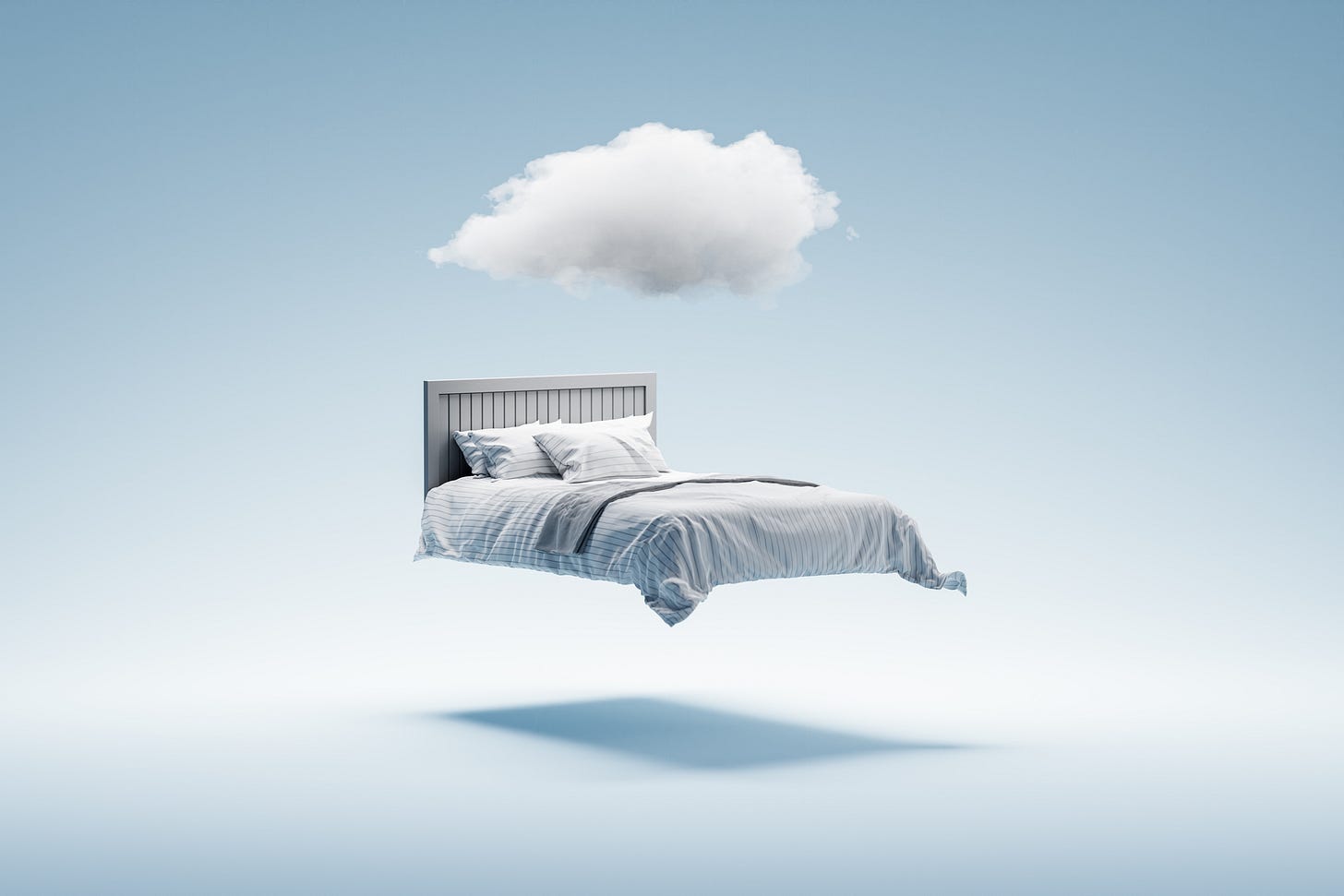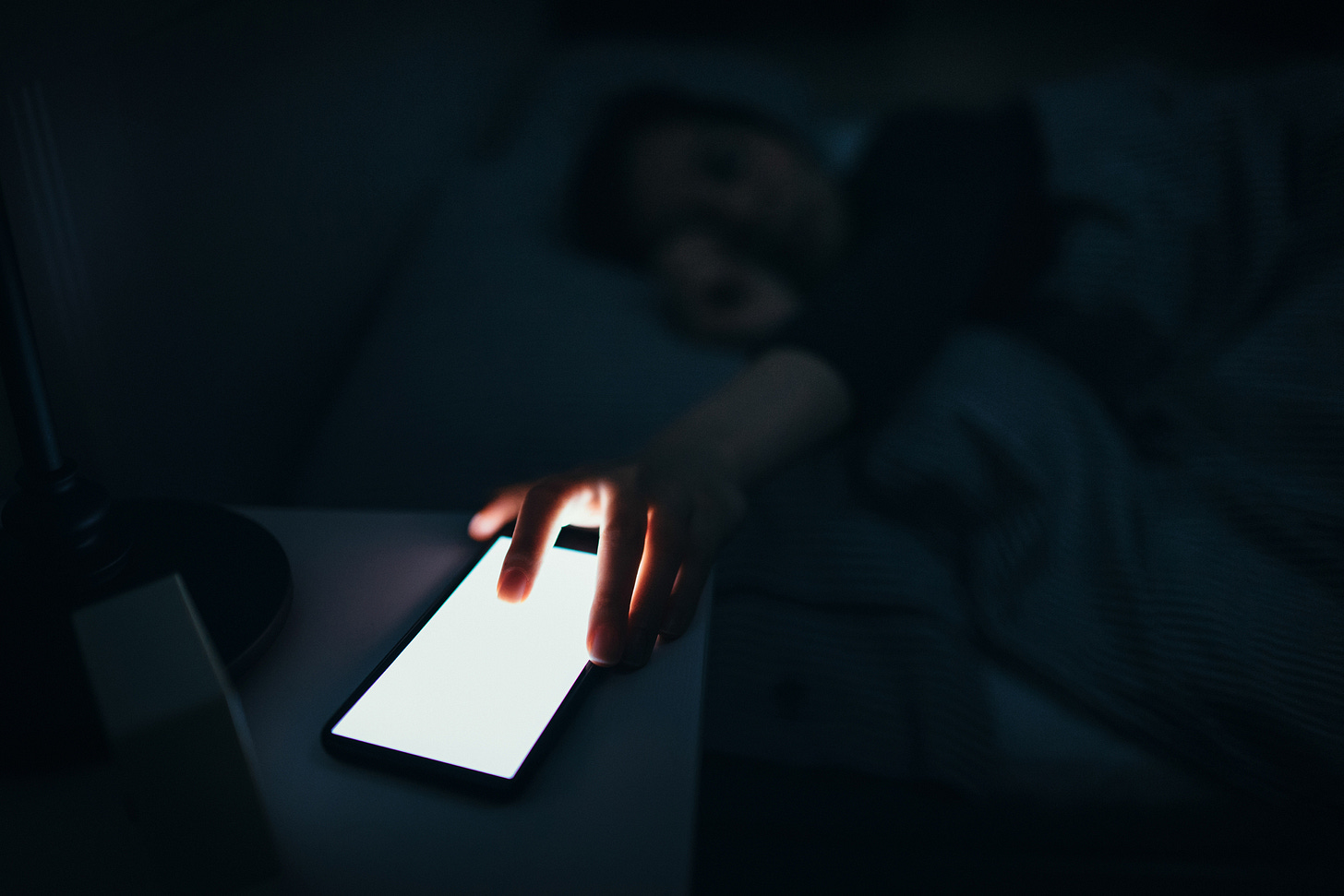This week, after a particularly wretched night's sleep, I decided to investigate the relationship between technology and insomnia - from both a professional and a personal point of view.
I wanted to know more about the science of sleep, whether tech was a help or a hindrance, and also to seek some advice on battling my own insomnia.
Among the many people offering advice and expertise were Dr Michael Farquhar , a consultant in sleep medicine at Evelina London Children's Hospital, and Dr Sophie Bostock, a sleep scientist and consultant. I got their insights on these questions:
WHY DOES SLEEP MATTER?
“Good sleep is one of the absolute pillars of good health and wellbeing for everyone, says Michael Farquhar. “And as a society we don't tend to value sleep as much as people like me think we should.” He puts part of the blame on politicians, including Boris Johnson, who boast that they thrive on limited sleep.
“There's a very longstanding line that if you can manage without sleep, then you are a stronger person, a better person, when actually the opposite is true.”
Sophie Bostock says about 1 in 10 of the population experience some kind of chronic sleep problem like mine. “But there's a whole much larger population, I'd say over 50%, for whom their sleep is not optimal. And they don't need rocket science and they don't really need a CBT for insomnia programme (more on this later), but they probably do need some evidence based help to understand sleep.”
SO IS LATE NIGHT SCREENTIME THE BIG NEW PROBLEM?
Both experts agree that lying in bed scrolling through Twitter or playing games on your phone can be bad for your sleep patterns, with the light messing with your Circadian rhythms. But they say most of the research evidence is about teenagers.
Sophie: “It does look as though young people are probably more sensitive to the effects of light before bed. So what we do know is that light suppresses melatonin but actually probably the effects of using your phone before bed - the more important effects - are in sleep displacement. In other words, people are getting distracted by what's going on on their phone rather than the light itself.”
Michael:”Something like half of American teenagers have their phones by their beds, and they interact with them at some point through the night. And then you ask them in the morning and they don't remember they've done it because what's happening is they get a notification, they wake up, they briefly look, they get back to sleep. But even that brief pulse of light is likely to then affect their sleep quality.”
WHAT ABOUT SLEEP APPS AND OTHER GADGETS?
You can now get any number of apps that claim to help you battle insomnia or devices like the Fitbit which can monitor your sleep. Michael has been sceptical about the accuracy and value of sleep trackers in the past - but he says the key is not to get obsessive about them.
Michael: “It depends a bit on who you are and what your type of personality is and how you use data like this. If you use it for a bit of an insight and then you make some changes, and you let that settle in, that can work really well. If you're the type of person that then obsesses over ‘oh my God, I got 17% deep sleep last night and normally I get 25%’ it can become counter-productive.”
Sophie: “Anything which forms a gentle distraction that takes people away from their own thoughts, potentially could have some sort of therapeutic value, just simply through preventing them ruminating on negative thoughts, but it's quite a narrow impact. It's a little bit like putting on a very loose sticking plaster on a gaping hole.”
HOW LONG SHOULD I JUST LIE THERE TRYING TO GET TO SLEEP?
I lay awake in bed the other night from 3am until 5 - this was apparently the wrong approach.
Michael:”One of the worst things you can do is lay there in the dark thinking about the fact that you're awake and you can't get back to sleep. You just end up ruminating and you become more focused on it.”
Sophie: “Don't go to bed until you're sleepy. If you wake up and you can't get back to sleep, get out of bed after 15 minutes. Don't just lie there and ruminate on the fact that you're not sleeping, forget about it. Get up, go do something else until you start to feel sleepy and only then get back into bed.”
SO WHAT IS YOUR BEST ADVICE?
Michael: What you're trying to do is retrain the brain into understanding that bed is somewhere for sleep. When you have insomnia, what you’re effectively doing is you're habituating your brain for chronic insomnia, that being awake in bed is something your brain expects, and that just perpetuates the problem. Separating that kind of ‘awake’ and ‘bed’ link is often really important.”
He recommends something called CBTI - cognitive behavioural therapy for insomnia - which has been around for a long time but is being given a hi-tech twist by companies which offer it as an online experience. Unsurprisingly, Sophie agrees - she used to work for one of the leading CBTI providers. But her key message is to try to keep calm.
Sophie: “The more stressed you are, the more you worry about it, the less likely you are to have a good night's sleep. I always reassure people - it's not that you're going to not sleep well forever. Sleep is going to come back and you just have to believe that. The the less that you worry about it, the more sleep, natural sleep, will take over.”
In other words, try not to lose sleep over falling sleep.
My next move is to try out one of those online cognitive behavioural therapy programmes. I will keep you updated on my progress.






I like the idea of making one's brain relearn the association between bed and sleep.
ICYMI, Nick Littlehales' short book Sleep - drawing on experiences with optimizing athletes' performance - has some good insights.
Hi Rory - have you come across David Baddiel's 6 part podcast Sleeping with David Baddiel .
He and neurologist/sleep expert Guy Leschener (sp?) try to solve his insomnia.
It's a good listen https://www.audible.co.uk/pd/Sleeping-with-David-Baddiel-Podcast/B08GCD7SR3